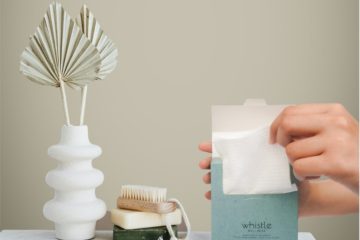Unlocking a bright and confident smile starts with picking the right dental crown. With so many options, it can feel confusing to find the best one. This guide will break down the different types of dental crowns.
You’ll gain the knowledge to make a smart choice. Whether you want something strong, good-looking, or budget-friendly, we’re here to help. Say goodbye to discomfort and hello to a healthy, stunning smile with the right crown for you.
Don’t let worries about crowns stop you from getting the smile you’ve always wanted. Read on to find the perfect fit!
1. Porcelain Dental Crowns
Made from high-quality ceramic, they can be color-matched to blend seamlessly with your natural teeth. Ideal for front teeth restoration, they provide a natural appearance and are excellent for patients seeking cosmetic improvements. However, porcelain crowns can be prone to chipping compared to other materials, so a discussion with your Lexington dentist, for instance, is essential regarding their longevity.
2. Ceramic Dental Crowns
Ceramic crowns are another aesthetically pleasing option, similar to porcelain but with enhanced durability. They offer impressive strength and wear resistance, making them suitable for both front and back teeth.
Their biocompatibility also ensures that they are less likely to cause any allergic reactions. Ceramic models can also be color-matched, providing a natural look while maintaining functional stability.
3. Metal Dental Crowns
Metal crowns, typically composed of gold alloy, palladium, or base metal alloys, are known for their incredible strength and longevity. These crowns withstand significant chewing forces and are particularly recommended for molars. Their metallic color makes them less suitable for visible teeth, but their durability often outweighs aesthetic concerns, especially in patients with substantial biting forces.
4. Porcelain-Fused-to-Metal Crowns
Combining the strength of metal with the aesthetics of porcelain, porcelain-fused-to-metal crowns are versatile. The metal base provides durability, while the porcelain overlay offers a natural appearance.
This type of crown is suitable for both front and back teeth, making it a common choice among dentists. However, some patients may notice a dark line at the gum line over time, leading to cosmetic concerns.
5. Resin Dental Crowns
Resin crowns are less durable than their porcelain or metal counterparts and are generally used as a temporary solution. They are more affordable than other materials and may be an option while waiting for more permanent crowns. Resin crowns can be color-matched but are more susceptible to wear and significant staining over time.
6. Zirconia Dental Crowns
Zirconia crowns are a modern solution offering both aesthetics and strength. They are made from zirconium oxide, a highly durable material.
These crowns are particularly popular due to their ability to withstand heavy occlusal forces and are suitable for patients seeking both front and back tooth restorations. Additionally, zirconia crowns can be precisely customized for coloration, matching the natural teeth effectively.
7. Temporary Dental Crowns
Temporary crowns are designed to protect the tooth while the final crown is being prepared. Typically made from acrylic or resin, they serve as a short-term solution.
While they offer basic protection and aesthetics, their durability is limited. Patients often need to be cautious with biting forces while using temporary crowns.
8. Implant-Supported Crowns
For those who have undergone dental implant surgery, implant-supported crowns offer a permanent solution. These crowns are attached directly to a dental implant, providing unparalleled stability and functionality.
Due to their secure base, implant-supported crowns can restore full chewing ability and promote bone health in the jaw. Patients considering this option should consult with a qualified dentist about suitability and care.
9. All-Resin Crowns
All-resin crowns offer a more economical option for patients requiring a crown on a limited budget. Though they are generally less durable than porcelain or metal options, all-resin crowns can effectively restore function and appearance. These crowns are often used temporarily but can serve patients well in certain situations, particularly where cost is a significant factor.
How to Select a Dental Crown That Will Last
Choosing the right dental crown type is essential for maintaining long-term dental health. There are main ways to make this decision.
1. Understand the Risk
To make an informed decision, it is crucial to understand the risk associated with each type of crown. Porcelain crowns, while aesthetically pleasing, may be at a higher risk for chipping or cracking compared to metal or ceramic fused to metal crowns. On the other hand, metal crowns may be more durable but may not be as aesthetically pleasing.
It is important to consult with your dentist to fully understand the risks and benefits of each option before making a decision. By understanding the risk, you can choose the best dental crown type that suits your needs and helps you maintain a healthy smile.
2. Consult with Your Dental Professional
Consulting with a knowledgeable professional is essential when selecting a crown. Your dentist can assess the condition of your teeth and recommend the most suitable crown based on factors such as:
- Your oral health history
- The location of the tooth being crowned
- Your aesthetic preferences
They can also provide insights about the longevity and care required for different types of dental crowns, enabling you to make a well-informed choice.
3. Consider Your Lifestyle and Personal Needs
Your lifestyle plays a pivotal role in determining the best crown type for you. For instance, if you grind your teeth or have a strong bite, metal crowns might be your best bet due to their superior durability.
On the other hand, if you prioritize aesthetics, a porcelain or porcelain-fused-to-metal crown can offer a more natural look, blending in with your surrounding teeth. Additionally, consider factors such as:
- Maintenance
- Allergies
4. Assess Costs vs. Longevity
While it’s tempting to choose the cheapest option, it’s essential to consider the long-term costs versus the initial investment. Durable crowns, although more expensive upfront, may save you money in the long run by reducing the need for replacements and repairs.
For example, metal crowns generally last 10-15 years, while porcelain crowns may last around 5-10 years. Ask your dental professional about warranty options or guarantees on different types of dental crowns, as this can also provide peace of mind for your investment.
Learn Various Types of Dental Crowns for Your Needs
Determining the right types of dental crowns for your needs is essential for both functionality and aesthetics. Consider the factors of material, cost, durability, and appearance when making your decision.
Don’t hesitate to consult with your dentist and ask for recommendations. Make the right choice for your smile and schedule your appointment today!
Looking for more tips and advice? Make sure to bookmark our page Buzz Revolve and come back to check out more interesting articles.




